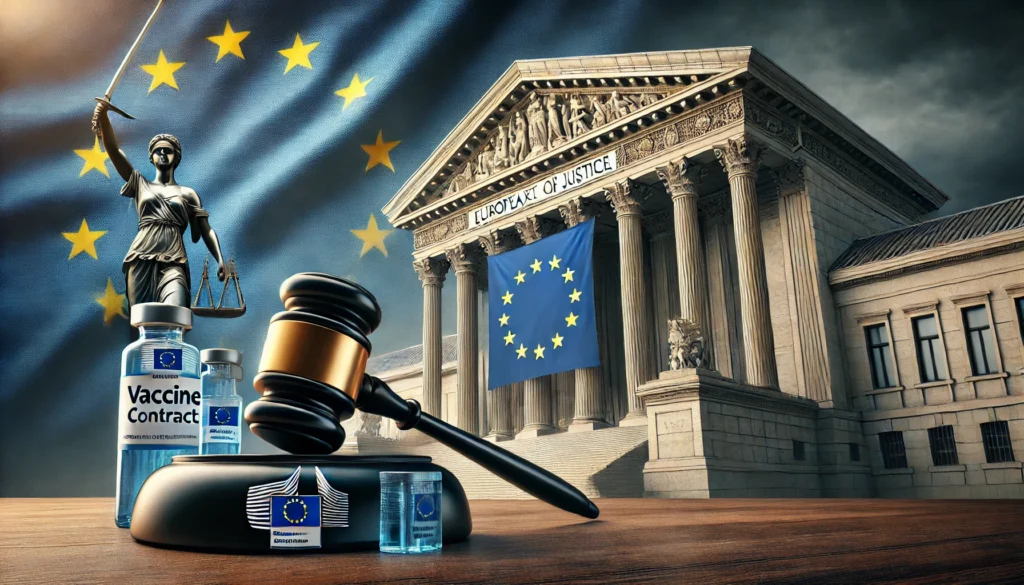A significant ruling by a top EU court has determined that European Commission chief Ursula von der Leyen was insufficiently transparent with the public regarding COVID-19 vaccine contracts. This decision represents a substantial setback for von der Leyen as she campaigns for a second term as European Commission President.
The General Court of the European Union has criticised the Commission’s decision to heavily redact large portions of the contracts before making them accessible to the public. This ruling emerged just over a day before von der Leyen’s political future is set to be decided by the European Parliament. She requires support from 361 out of the 720 EU lawmakers in an upcoming secret vote, which is anticipated to be closely contested.
A notable group from which von der Leyen has sought support is the Greens, the same members who initiated this legal challenge concerning the vaccine contracts. These MEPs filed requests to access the full vaccine contracts and associated documents to scrutinise the agreements made between the Commission and COVID-19 vaccine manufacturers in 2021. However, the Commission only granted partial access, citing commercial interests and privacy concerns for the redactions.
The General Court’s ruling on Wednesday partially favoured the MEPs’ lawsuit, annulling the Commission’s decision to redact critical parts of the contracts. The court challenged the Commission’s justification for concealing clauses related to indemnification, asserting that the Commission failed to demonstrate how these provisions would jeopardise the commercial interests of the pharmaceutical companies involved.
Additionally, the Commission had withheld the identities of the officials who negotiated the vaccine purchases, citing privacy issues. However, the court found that the MEPs sufficiently demonstrated a “public interest” in identifying these officials to assess any potential conflicts of interest.
Tilly Metz, a Green MEP who was among those filing the lawsuit, hailed the ruling as a pivotal moment for future Commission activities, particularly as more joint procurements in health and possibly defence are expected. Metz emphasised the court’s affirmation of the necessity for thorough justifications when protecting commercial interests, urging the new European Commission to align their document access policies with the court’s decision.
Peter Liese, an MEP from the European People’s Party (the same political group as von der Leyen), downplayed the court’s decision, defending the Commission’s actions as “justifiable” to meet the pharmaceutical companies’ demands and secure rapid vaccine access for Europe. He suggested that while the Commission’s legal team should review the judgement thoroughly, the notion that the Commission entirely erred is already disproven by the court’s partial support of the Commission’s redactions.
The Commission acknowledged the court’s stance that certain contract clauses warranted protection due to commercial interest, thus partially validating the Commission’s actions. It emphasised the delicate balance it needed to maintain between public right to information and legal obligations stemming from the COVID-19 contracts, which could potentially lead to financial claims against taxpayers.
In its statement, the Commission committed to “carefully studying the Court’s judgments and their implications,” and indicated that it “reserves its legal options” moving forward.
This ruling brings significant implications not only for Ursula von der Leyen’s immediate political aspirations but also for the broader transparency practices of the European Commission in handling sensitive contractual information.






